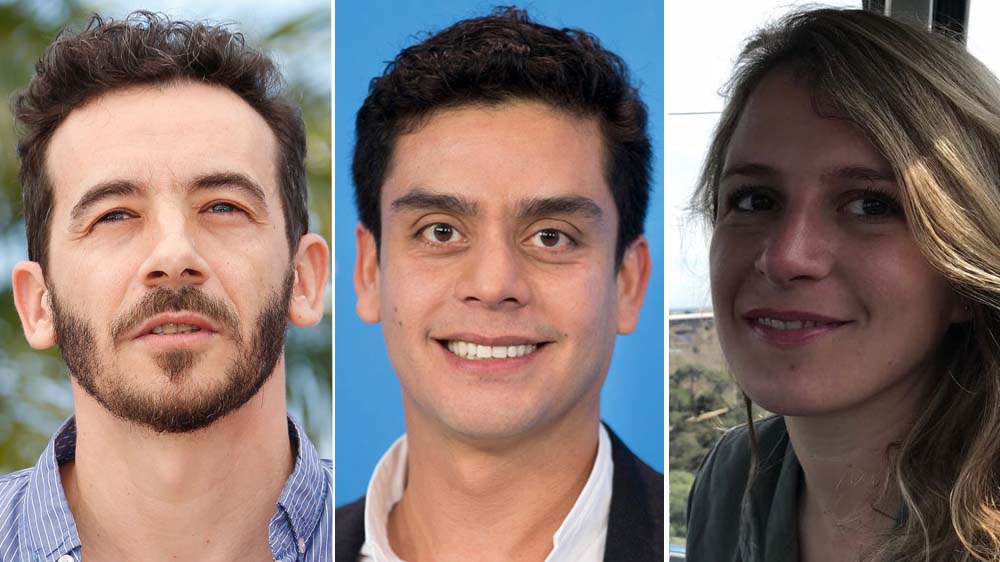San Sebastian: Fendrik, Bustamante, Huser, Roquet Top Co-production Forum
By John Hopewell
LOS ANGELES (Variety.com) – SAN SEBASTIAN — Pablo Fendrik’s “Hermano Peligro,” Jayro Bustamante’s “La Llorona,” Matthias Huser’s “The Jungle” and Clara Roquet’s “Libertad” took one prize a piece at San Sebastian’s 7th Europe-Latin America Co-Production Forum, which wrapped Wednesday night.
Meanwhile, “The Sharks,” the first feature of Uruguay’s Lucia Garibaldi, swept San Sebastian’s Films in Progress.
While awards in the past have sometimes gone to little-known projects, this year saw plaudits shared by four of the strongest projects at the market in terms of director reknown, prestige producer backing or even, in the case of “La Llorona,” a sales market deal.
Winner of the Co-production Forum Best Project Award, “Hermano Peligro,” for instance, comes from a director. Pablo Fendrik, whose first three films, “The Mugger,” “Blood Appears” and “Ardor” have all been selected for the Cannes Festival, before he went on to co-direct two of the most distinguished Argentine TV series of recent years: “Cromo” and HBO Latin America’s “The Bronze Garden.” A propulsive vengeance-survival thriller set in the wilds of Patagonia, “Hermano Peligro” is produced by Argentina’s Rei Cine (“Zama,” “The Accused”), co-produced by Denmark’s Snowglobe (“Our Time,” “Birds of a Passage”).
Winner of the EFADs-CACI Europe-Latin America Co-production Grant, adjudicated by the two regions’ state film agencies, “La Llorona” marks Guatemalan Jayro Bustamante third feature after he burst onto the scene with Berlin Silver Bear winner “Ixcanal.”
A “luminous revenge thriller” with echoes of “Inglourious Basterds” but set in contemporary Guatemala, Bustamante said at San Sebastian“ “La Llorona” (The Weeping Woman) stars “Ixcanul” leads Maria Mercedes Caroy and María Telón in a movie taking as a backdrop the mass killings of Maya civilians during the Guatemalan Civil War (1960-1996).
Swiss Matthias Huser, whose 2014 Kaurismaki-ish debut, “They Chased Me Through Arizona,” drew fans at Locarno, won the Forum’s Eurimages Development Co-production award for “The Jungle,” about a dying father fighting for his land in the jungle, a symbol of natural chaos, Huser has said. Also behind Toronto Platform and San Sebastian competition title “The Innocent,” Switzerland’s 8Horses produces.
Part of an exciting generation of young women directors in Catalonia bursting through to festival berths and prizes, Clara Roquet, screenwriter of SXSW best actors winner “10,000” and Directors’ Fortnight title “Petra,” won the Forum’s Arte Kino Intl. Prize for her debut, “La Libertad,” produced by Barcelona-based Lastor Media (“10,000Km”), Madrid’s producer-distributor Avalon (“Summer 1993”) and Snowglobe .
“A story of feminine friendship and loss of innocence,” Roquet told Variety, “La Libertad” turns on a girl forced to come of age by her maid’s wild teen daughter, discovering the class gulf and the meaning of freedom on the way.
Directed by Garibaldi, “The Sharks” scooped both the Films in Progress 34th Industry Award, granted by a slew of Spanish services and production companies – Ad Hoc Studios, Deluxe-Spain, Dolby Iberia, Laserfilm Cine y Video, Nephilim producciones, No Problem Sonido and Wanda Visión – and the Film Factory Award, consisting of the offer of a €20,000 ($23,200) minimum guarantee.
Shown at rough cut in San Sebastian, Garibaldi’s debut centers on a teen girl, Rosina, at A small seaside resort threatened – or rumors have it – by the arrival of sharks offshore. But Rosina welcomes the new arrivals, does everything she shouldn’t “as if driven by animal instinct,” the festival synopsis reads. “The Sharks” “talks about what’s hidden beneath the surface, about hot blood, the sea and the irremediable search for empathy,” it adds.
A follow-up to his admired “The Gambler,” Lithuanian helmer Ignas Jonynas snagged the Glocal in Progress Award for “Invisible,” the story of a man faking blindness in order to participate in a TV dance contest, took both awards at Glocal in Progress.
Elena Lopez Riera’s “El Agua” (Water) walked away with the Ikusmira Berriak Award, awarded by the San Sebastian-based residence film development program, for the story of a teen obsessed by ghost of her mother, who died in a flood.
Awards were announced at a ceremony that would make the Oscars blush with its speed and efficiency, taking place in a packed main press conference room at San Sebastian’s Kursaal center, playing out to a larger crowd than some of the world’s biggest film stars attract.
Awardees could hardly avoid mentioning their home countries in at least two cases, “The truth is it’s been a luxury and given the conditions of our country, this is very important to us,” said Argentina’s Benjamin Domenech, producer of “Hermano Peligro.”
“Thanks to the Europeans linking up with our work, the people around us, and the people in Guatemala who worked on this where the government still believes we are their enemies,” said “La Llorona” director Bustamante, who won a Special Jury Prize four years ago at San Sebastian’s Films in Progress for “Ixcanul,” an expose of baby trafficking, and Guatemala’s huge class and gender gulfs.

